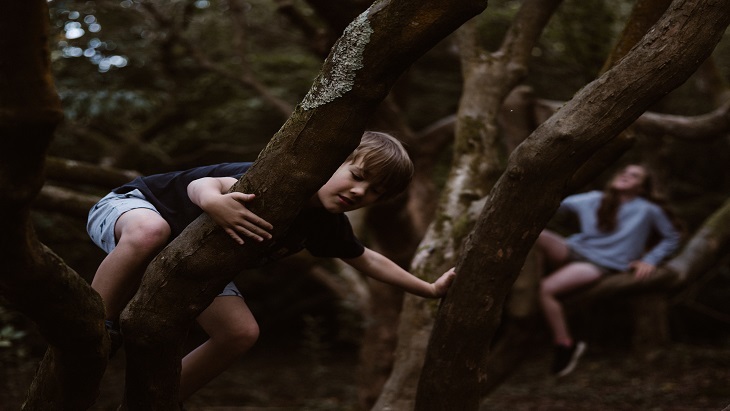
As the threat of lock-down and self-isolation looms, along with public venue closures and the active requirement to socially distance, many parents are no doubt dreading the inevitable cries of ‘I’m bored!”.
But, there’s no need to panic, with experts claiming boredom is not only good for kids, but is necessary for their cognitive development.
“Children need to have opportunities for boredom because boredom helps children to develop creativity and imagination,” says parenting expert, teacher and author or The Magic Coat, Di Wilcox.
“Parents need to make sure that children's schedules actually allow for boredom.”
With the over-scheduling of modern day children, combined with rampant use of technology, today’s generation of kids are quick to complain about being bored.
“Boredom can be seen as an absence or missing of something,” says Wilcox.
“Technology has created a new normal state of engagement where children are constantly busy and they don't know how to just be in the present moment, thinking, reflecting and having self-awareness.”
As a result, the current generation of parents often fear they’re neglecting their children by allowing them to be bored, when in fact, preventing boredom is actually a disservice to children.
“They need to develop their own imagination, curiosity and creativity,” says Wilcox.
“We are over scheduling our children, believing time without focus or a goal is a waste of time, when in fact our children learning to enjoy their own company is an incredible gift.”
When children are bored, they’re left with little choice, but to become curious and explore what’s around them.
“This can lead to children getting creative and even using their imagination.
“Children learn to take things slower and absorb duller information which is beneficial for academic learning.”
Wilcox says it’s okay to empathise with your child's feelings, just don’t be too quick to try and find them an activity to do, or give in to technology requests.
“Invite them to help you in the garden or to cook, clean up their room, wash the dog – or complete the chores that still need to be done.
“Explain to children that life is not always exciting and sometimes we need to do things we don't want to do.”
Imagination is vital for good mental health, allowing us to discover passions through creativity and innovation.
So, how can you promote the use of imagination to children who are used to being entertained 24/7?
Firstly, you can be a good role model.
“When parents get involved in creative activities they encourage their children to do the same,” Wilcox says.

Other ways you can help include:
- Provide children with opportunities to play freely - in other words, make time for doing nothing!
- Don’t worry about the mess – you can clean it up together later.
- Unplug or remove technology, and encourage kids to go outside and explore nature.
- Keep all your recycling for creative fun – have access to glue, scissors, paint and textas.
- Grab some ingredients and allow your children to help in the kitchen.
- Instead of emailing and face timing, encourage kids to write real letters that can be posted to friends and family.
The most important message? Stop feeling guilty!
“As long as children have their basic needs being met, they are not being neglected," says Wilcox.
“Life is not an amusement park that mum and dad have to create every day.”
With the uncertainly of the weeks and months ahead, we could be looking at spending a lot more time at home, meaning boredom is inevitable.
So, instead of panicking, use the time to reconnect as a family, and let your imaginations run wild.
What Are The Alternatives When Everything is in Lockdown?
The Best Podcasts For Mums And Dads
Top TV Shows To Binge-Watch While You're In Self-Isolation
Have you signed up to our newsletter? Join ellaslist to get the best family and kid-friendly events, venues, classes and things to do NEAR YOU!
Reviews



 Pick a Date
Pick a Date


